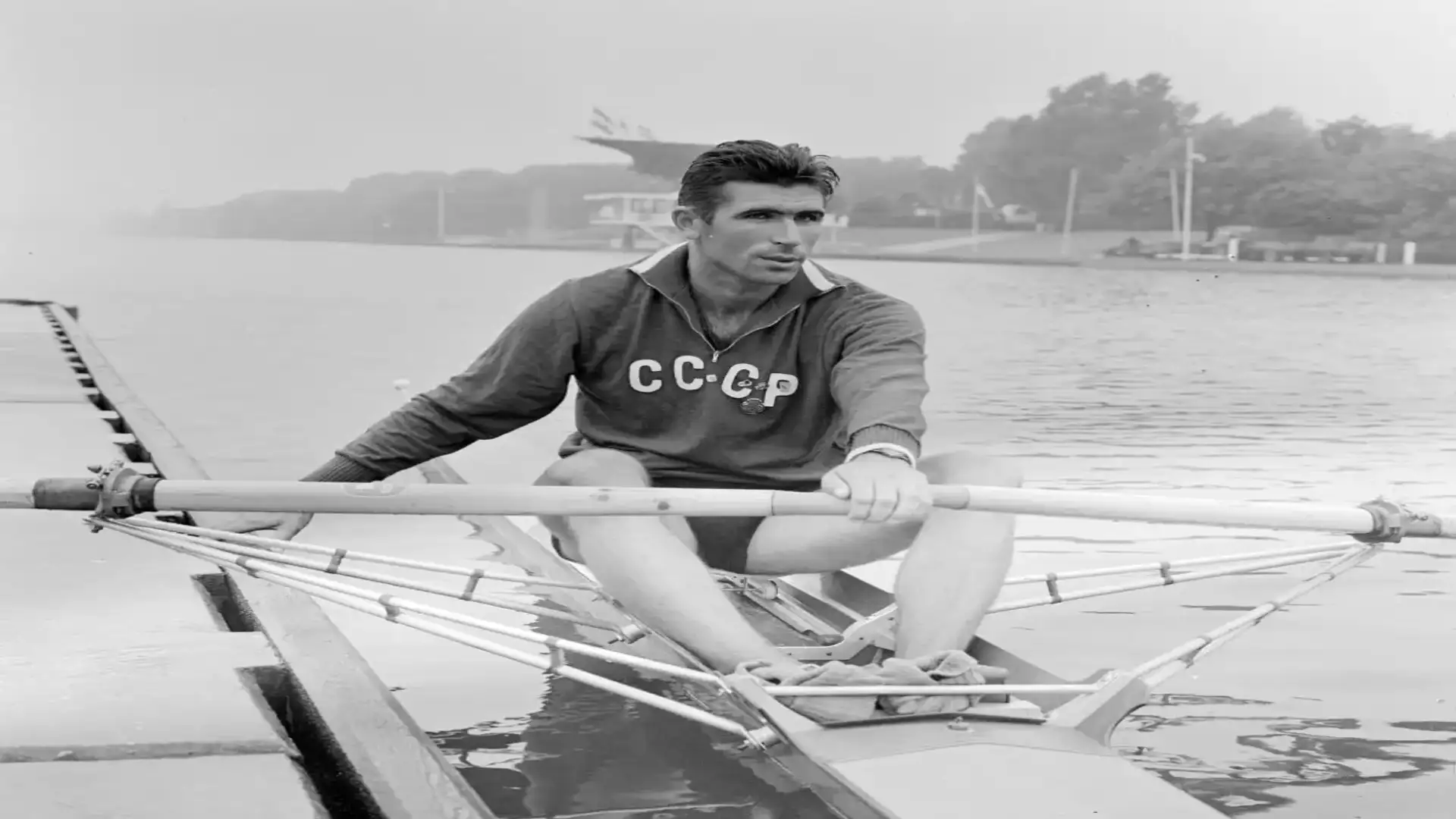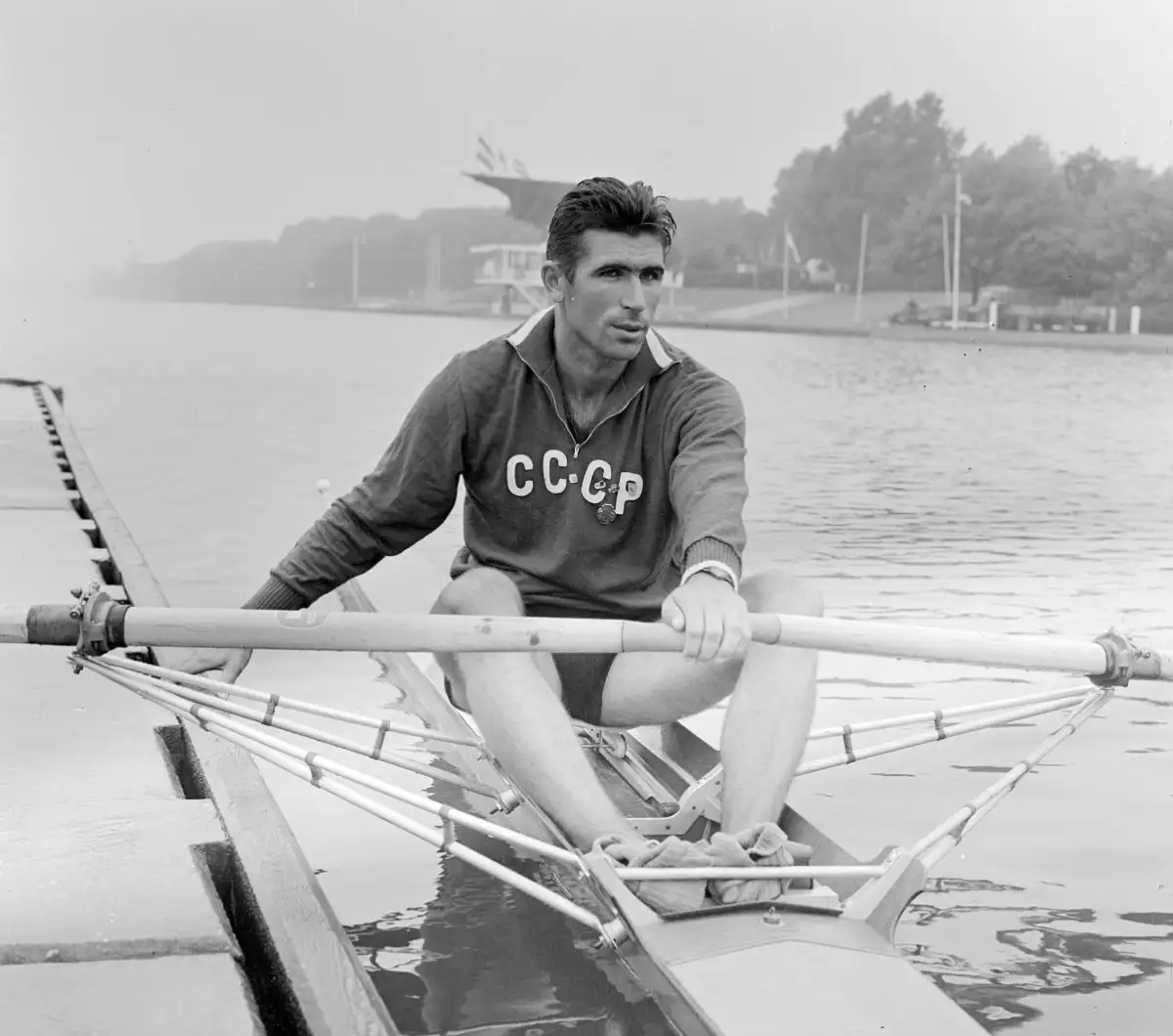
Vyacheslav Ivanov was the first remer to get three consecutive Olympic oars
Vyacheslav Ivanov was the first remer to get three consecutive Olympic oars
Vyacheslav Ivanov is considered one of the best "skiffists" in Olympic history. An aureola that was forged for being the first to get three consecutive oros in this test, only equated by the Finnish Pertti Karppinen (1976 / 80 / 84).
This moscovite began to row at the age of 15 and three later, with 18, it was proclaimed a young champion of the USSR and third in absolute category what meant its selection for the JJOO of Melborune 1956.
In the annals of the Olympic rowing it is difficult to find such a spectacular dating as the one that Ivanov starred in those Games. Fourth classified when they were over 1500 meters, he made a brutal change in the pace of the boga and began to remount positions first by exceeding the Polish Kocerka, then the American JB Kelly and began to approach dangerously to the Australinao MacKenzie, who had mastered the test with much authority, to the point of overcoming it in full disconcertation when it, seeing itself already winning, had slowed its pace in a fatal calculation error.
Such was the joy of Vyacheslav that after receiving the gold medal in a jubile sign he threw it into the air with the bad fortune that it fell into the water as the ceremony had taken place on a platform by the shore of Lake Wendouree. Desperate, Ivanov skipped several times in search of the medal but his efforts were unsuccessful and it never appeared. However, everything was left in a temporary disgust as the CIO returned another medal.
The Australian learned the lesson and beat the Russian in several international races, however a disease prevented the expected rematch between the two in Rome 1960. In the Roman capital the duel was between Ivanov and the eastern German Achim Hill, imposing the Russian with a comfortable margin above six seconds. On the way to his third games, in 1962 Ivanov was proclaimed world champion in the first edition of the world of this discipline.
Already in Tokyo 64 his duel with the German Hill was repeated. On this occasion Hill came out with less momentum and a progressive rhythm that, over 500 meters, placed him in the head and gradually increased his difference until 7 seconds. However, in the last 500 meters Ivanov, in another one dating back to his, with an infernal rhythm he achieved to equal Hill to, that if bordering the death, take the lead to cross the goal first with more than three serponds of advantage.
In 1966, after finishing the final of the Ivanov World Championship, he decided to end his successful sports career in which, in addition to the three Olympic Oros, he was a world champion and on four occasions also a European one.
Three times decorated by the authorities of the USSR and an officer of the Soviet army, he lived in a quaint until the dismemberment of the Soviet regime in the early 1990s. He did not escape the economic crisis and became a victim of it. He gave his apartment to his son and his family who were in difficulty and went on to live modestly in a rented room away from the world of sport in which with his majestic victories he was the true czar of the Olympic oar leaving an unbeatable footprint.
Text: Juan Manuel Surroco
http: / / elmargadordejmsurroca.blogspot.com
@ SurrocaJM
© 2024 Nautica Digital Europe - www.nauticadigital.eu












